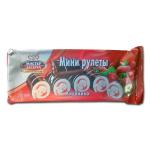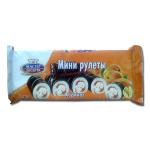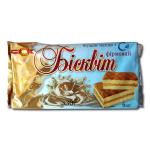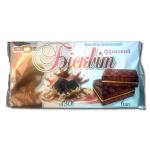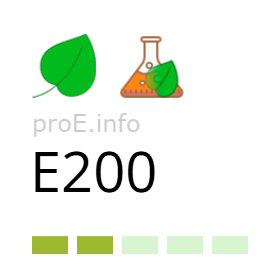
Other names for the additive (synonyms)
General Information
Sorbic acid is a food additive E200 with antimicrobial properties, used in the food industry as a preservative.
Sorbic acid occurs in small amounts in the fruits of certain plants. It was first isolated in 1859 from rowanberry juice, which is where it got its name (from Latin Sorbus — rowan).
In 1939, the antimicrobial properties of sorbic acid were discovered, and since the 1950s, it has been industrially produced for use in the food industry as preservative additive E200.
The chemical formula of sorbic acid is C6H8O2. Today, it is produced by condensing ketene with crotonaldehyde in the presence of acid catalysts. Thus, additive E200 is an artificial compound — while it occurs in nature, it is synthesized on an industrial scale.
In appearance, additive E200 is colorless crystals or a white crystalline powder with low solubility in water. At high temperatures and humidity, as well as under the influence of light and oxygen, it can decompose into aldehydes, ketones, low-molecular-weight acids (acetic, formic, etc.), carbon dioxide, and water.
Upon decomposition, the preservative activity of sorbic acid decreases. The resulting aldehydes and acids can alter the taste and smell of the product.
Effects on the Body
Risks of additive E200
In high doses or in individuals with sensitivity, additive E200 may cause irritation of the mucous membranes or skin, though such reactions are rare at standard concentrations.
Some in vitro studies have shown that under certain conditions sorbic acid may cause oxidative stress, but there is no evidence of such effects in humans under normal consumption conditions.
According to the assessment of the European Food Safety Authority (EFSA) Panel, sorbic acid and its salts are safe when consumed within the acceptable daily intake (ADI), which is 3 mg per kg of body weight per day.
Benefits of additive E200
When consumed in acceptable amounts, sorbic acid does not have toxic or carcinogenic effects. Studies cited by the EFSA Panel show that it is safe within the established intake limits.
Some sources suggest that sorbic acid may enhance immunity and promote the elimination of toxins, but these claims are based on preliminary observations and have not been confirmed by large-scale clinical trials.
Uses
Additive E200 is used in the food industry as a preservative that effectively inhibits the growth of molds, yeasts, and some bacteria. It is most commonly added to:
- juices and soft drinks,
- confectionery,
- bakery products,
- processed meat products,
- granular caviar,
- condensed milk and dairy products,
- sauces and marinades.
Typical usage concentration: from 30 to 300 g per 100 kg of finished product, depending on the product category and national regulations.
In addition to the food industry, sorbic acid is also used in cosmetics and pharmaceuticals as an antifungal preservative.
Legal Status
Additive E200 is approved for use in food products in most countries, including Ukraine, the European Union, and the United States.
In the U.S., sorbic acid is included in the GRAS (Generally Recognized As Safe) list by the FDA. In the EU, its use is regulated by Regulation (EC) No 1333/2008.
